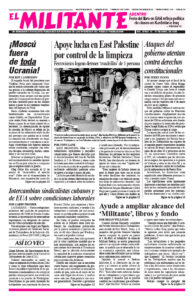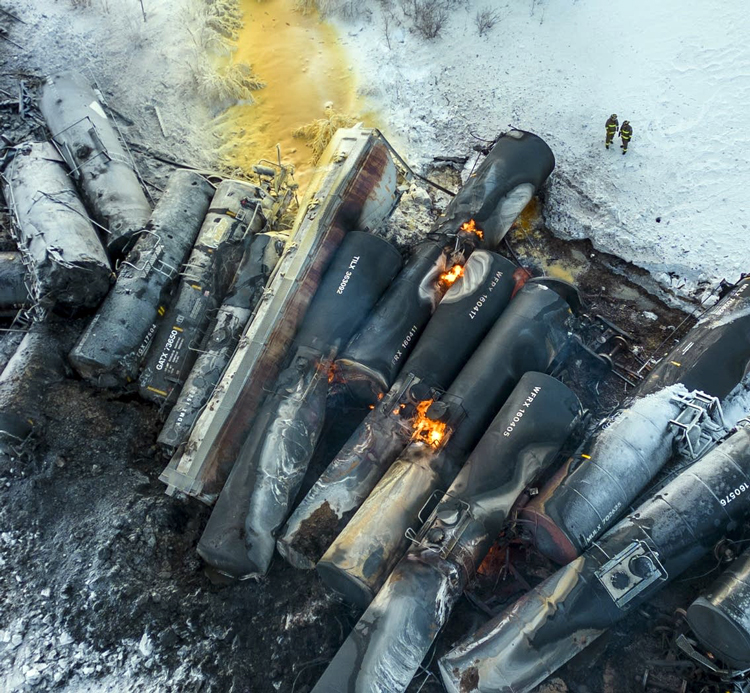RAYMOND, Minn. — In the early morning hours of March 30 a BNSF train derailed a mile south of here, putting 22 cars, including a number loaded with highly flammable ethanol, on the ground. Over 800 people live in the town, about 100 miles west of Minneapolis. Volunteer firefighters from 28 areas responded to put out the resulting fires.
People were told to evacuate the town until the fires were extinguished. That afternoon they were told they could return. Most people immediately thought about the disaster that had taken place in East Palestine, Ohio, in February.
Taking the Militant door to door in Raymond April 3, worker-correspondents Michael Najim and I met with Ashley Yang. She is a stay-at-home mom with four boys whose husband works in construction. “They knocked on our door after the derailment and we had to go to my in-laws to spend the night,” she said.
We showed her the Militant coverage of the fight being waged by working people in East Palestine to take control over the cleanup from the toxic spill and fires there and the need for larger crews on trains to guarantee safety. Yang said, “We didn’t face the same health hazards as they did in Ohio, but I agree that there needs to be more crew on these long trains.”
We also spoke with Mayor Ardell Tensen, who is also assistant fire chief. He said his town is in the hub of farm country and that trains, many carrying ethanol, run through every 90 minutes, around the clock.
Tensen explained the situation would have been much worse if the derailment had occurred in the center of Raymond. There are sizable grain bins in the downtown area that could have burned and been destroyed.
“I’m actually a farmer,” Fire Chief Brian Neal told the Minneapolis Star Tribune. He grows corn, soybeans and sugar beets. “Half of the town in some way, shape or form has ag ties.”
“We didn’t face the same situation as in Ohio,” Tensen told us. “The content of the tankers here was less toxic to the environment and to people’s health, and the rapid response from many different communities helped to put out the fires and stem any spread of the burning chemicals.”


